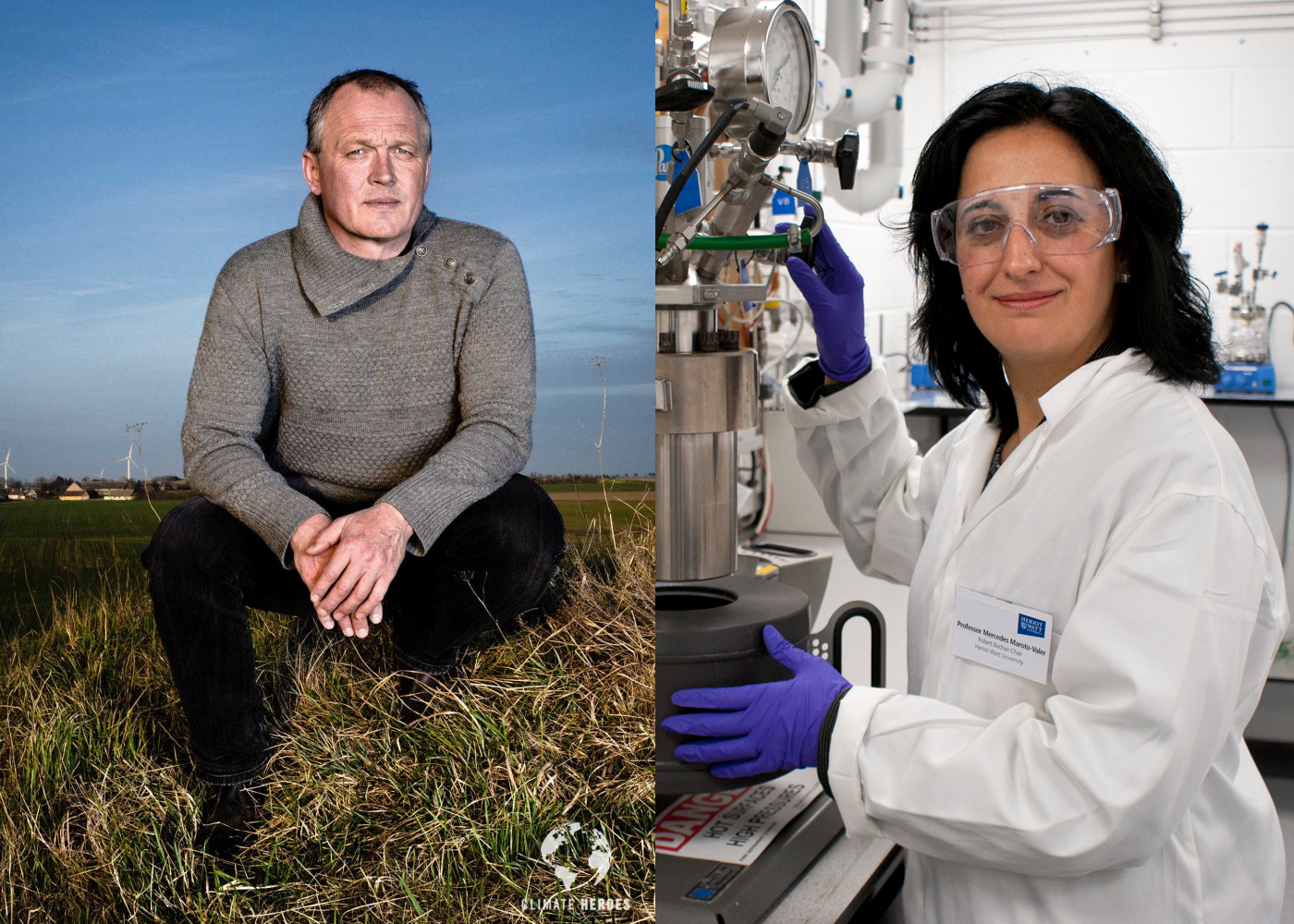‘Climate Action’ is this year’s theme of the TU Delft Dies Natalis. Honorary doctors Søren Hermansen (DK) and Mercedes Maroto-Valer (UK) both fit the profile very well.
Søren Hermansen (Photo: Climate Heroes) and Mercedes Maroto-Valer. (Photo: Edinburgh Research Partnership in Engineering, ERPE)
Climate change has become tangible in most people’s lives. Yet greenhouse gas emissions continue to rise. Last year showed an increase of 3% because the growth in renewable energy sources falls short of the increase in demand. The need for climate action has never been more urgent, one could say. Even more so in the Netherlands, which has the second-worst performance in renewable energy in Europe.
Yet, as climate actions become more concrete, such as initiating carbon storage projects or rolling out new wind farms, societal resistance is growing and people are starting to worry about the costs of climate measures and how these are shared.
Pioneers
Honorary doctors Søren Hermansen (DK) and Mercedes Maroto-Valer (UK) are both pioneers in climate action in their own fields. Hermansen led the bottom-up energy revolution on his Danish island Samsø, and Maroto-Valer of Heriot Watt University in Edinburgh, is a pioneer in carbon capture and utilisation technology.
Maroto-Valer’s honorary promotor, Professor Paulien Herder (TPM/3mE), Chairman of the Delft Energy Initiative, wrote: ‘Professor Mercedes Maroto-Valer has an excellent CV that includes an ERC Advanced Grant. She has done experimental and applied work on carbon capture and carbon re-use, by converting carbon into solar fuels. This expertise is widely recognised globally and a key complement to the e-Refinery programme at TU Delft. She is a clear multidisciplinary systems thinker, covering many disciplines ranging from nano-scale chemistry and reactor engineering to macro-scale policy, regulation and economics. This sets her apart from many other CCUS (carbon capture, utilisation and storage) researchers and makes her a perfect fit with our TU Delft e-refinery philosophy.’
Professor Andy van den Dobbelsteen (climate design and sustainability at the Faculty of Architecture and the Built Environment) is Hermansen’s honorary promotor.
He wrote: ‘Søren Hermansen is the initiator and leader of the sustainable transition of his island, Samsø, which became carbon and energy positive in seven years, between 1997 and 2005, and is now striving to become fossil free and circular. Apart from conceiving and achieving renewable energy systems and solutions, Søren has shown great leadership in bringing together the communities on the island and getting them to support and co-finance the transition, which has been a great success. Samsø has become the global example of the sustainable transition of communities (municipalities, regions, islands) and Søren – who became Adjunct Professor at Aalborg University and was given the Göteborg Award (the ‘Green Nobel Prize’) and Danish Svend Auken prize – has since travelled the world to convey the message of climate action and teach people transition methods. TU Delft is very proud that Søren Hermansen has accepted the honorary doctorate and is looking forward to setting up and collaborating on projects with him.’
The appointment of the honorary doctorates will take place in the second half of the 177th Dies Natalis academic ceremony to be held on Friday, 11 January between 15:00 and 17:00 in the TU Delft Aula.
Prof. Mercedes Maroto-Valer, Heriot Watt University.
Dr. Hermansen’s lecture at Waterloo University.
A visit to Samsø.
Heb je een vraag of opmerking over dit artikel?
j.w.wassink@tudelft.nl


Comments are closed.